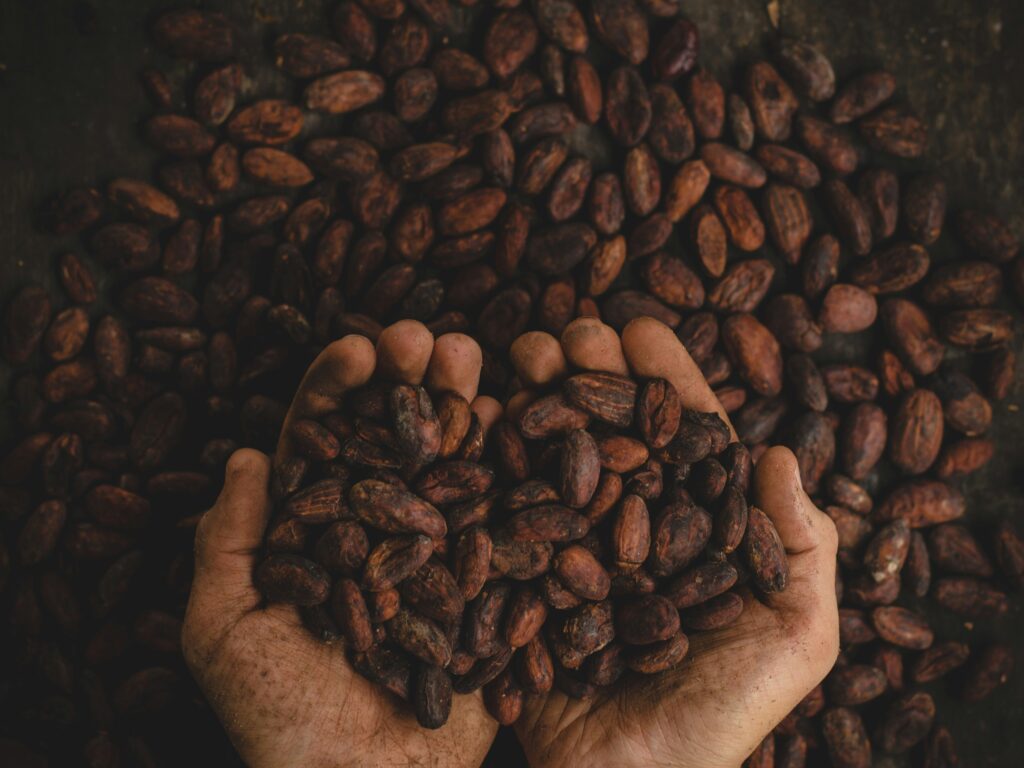Chocolate lovers, rejoice! Your sweet tooth can make a difference—not just for your taste buds, but for the planet, farmers, and your health. Choosing certified organic chocolate over conventional varieties ensures that your indulgence supports sustainable practices, ethical sourcing, and better nutrition. Here’s why:
- No harmful pesticides or synthetic fertilizers
Conventional cacao farming relies heavily on synthetic pesticides and fertilizers, which can leave harmful residues on cocoa beans and negatively impact ecosystems. Certified organic chocolate is grown without these chemicals, protecting both consumers and the environment.
- Protects rainforests and biodiversity
Organic cacao farms promote sustainable land use and discourage deforestation, helping to preserve biodiversity and protect critical rainforest ecosystems. Conventional cacao farming is often linked to deforestation in regions like the Amazon.
- Supports fair wages and ethical labor
Many organic chocolate brands are also Fair Trade Certified, ensuring that cacao farmers receive fair wages and work under ethical labor conditions. Conventional chocolate production has been associated with exploitative labor, including child labor in some cases.
- Better for soil health
Organic farming techniques, such as crop rotation and composting, enhance soil health and fertility without depleting essential nutrients. Conventional farming, by contrast, often degrades the soil with synthetic inputs.
- No artificial flavors, preservatives, or GMOs
Certified organic chocolate is free from genetically modified organisms (GMOs), artificial flavors, and synthetic preservatives, ensuring a purer and more natural chocolate experience.
- Higher A\antioxidant content
Studies suggest that organically grown foods, including cacao, can have higher levels of beneficial antioxidants such as flavonoids, which help fight inflammation and support heart health.
- Reduces exposure to heavy metals
Some conventional chocolates have been found to contain concerning levels of heavy metals like lead and cadmium. Organic certification involves stricter oversight, reducing the risk of contamination.
- Protects pollinators
Organic cacao farms avoid synthetic pesticides that are harmful to pollinators like bees and butterflies, ensuring a healthier ecosystem and sustainable cacao production.
- Encourages transparency and traceability
Organic certification requires rigorous standards and full traceability from farm to bar, giving consumers confidence in the ethical and sustainable sourcing of their chocolate.
- Better for Mother Earth
Studies show that “the elimination of synthetic nitrogen fertilizers alone, as is required in organic systems, could lower direct global agricultural greenhouse gas emissions by about 20%”.
A bonus reason is that many chocolate connoisseurs argue that organic chocolate, grown without chemical additives, boasts a richer, more complex flavor profile. When cacao is grown in harmony with nature, the quality shines through.
Make every bite count
Choosing certified organic chocolate is a delicious way to support a healthier planet, fairer trade practices, and a cleaner diet. Next time you’re craving something sweet, reach for an organic chocolate bar and savor the difference!
We recommend the following certified organic chocolate brands:









